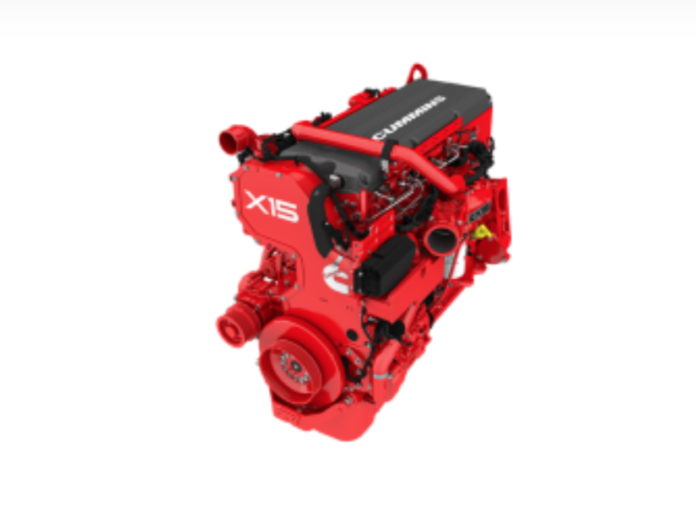Cummins Inc., a corporation of business segments that design, manufacture, distribute and service power solutions, and Tula Technology Inc., a company that specializes in propulsion efficiency, have unveiled the results of their collaborative study on the effectiveness of Tula’s diesel Dynamic Skip Fire (dDSF) in reducing nitrogen oxides (NOx) and carbon dioxide (CO2) emissions on a Cummins X15 HD Efficiency Series diesel engine.
Low-load cycle performance was estimated with a well-calibrated powertrain simulation tool to accurately capture the low-load system operation and emissions. This system showed a 74% reduction in NOx and a 5% reduction in CO2 compared with today’s clean diesel technologies. In comparison with current engine technologies and modifications to the thermal management techniques, dDSF saved 20% in fuel – validating dDSF as a more fuel-efficient means of reducing NOx.
Cummins and Tula demonstrated the positive dDSF results in a Class 8 truck powered by a Cummins X15 HD engine. The dDSF test results highlight a promising technical advancement for an industry seeking strategies to address future, more stringent NOx emissions regulations for diesel engines.
“Tula’s dDSF technology provides significant benefits to reducing NOx and CO2 emissions under low-load vehicle operation, which will aid our efforts to produce more reliable, more powerful engines while meeting our environmental goals,” says Lisa Farrell, director of accelerated technology at Cummins Inc.
Dynamic Skip Fire (DSF) is an advanced cylinder deactivation control strategy that makes decisions for an engine’s cylinders on an individual basis to best meet torque demands while saving fuel and maintaining performance. Tula’s original DSF software has been shown to significantly reduce CO2 emissions in gasoline engines and has been in production since 2018 with more than one million vehicles on the road.
Photo: Cummins X15 HD Efficiency Series diesel engine





